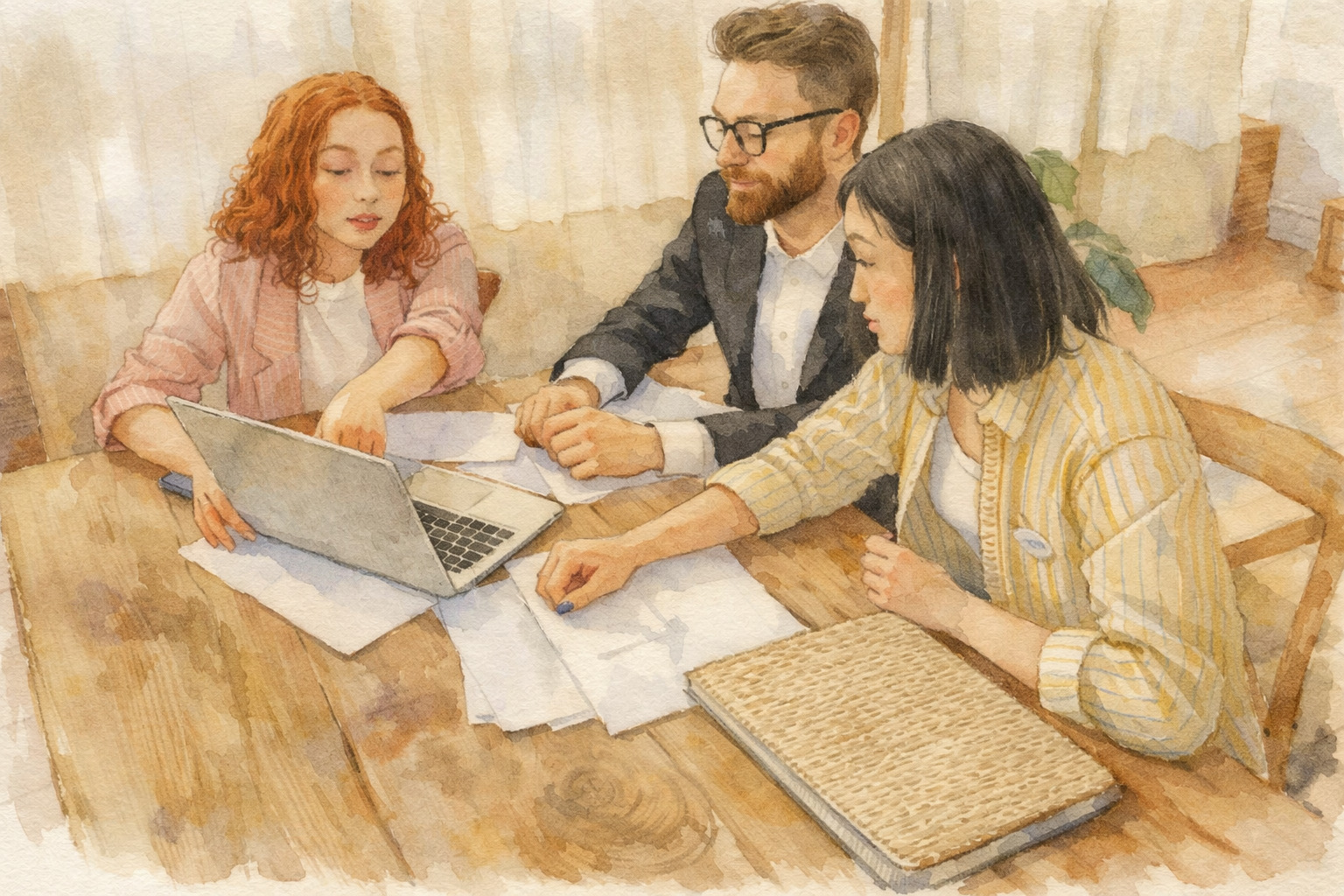I recently had a conversation with a friend who has three incredibly kids who she loves with her whole heart. We were talking about grief personas and she mentioned that she has asked her youngest daughter to be her executor because she is a very strong Steady Hand. She was worried that her other children would be hurt by this. All the Grief Personas serve a very important purpose and framing your executor decision through this lens can make this feel more kind than helpful. I hope this framework helps with those decisions and conversations. – Sarah
Why This Choice Matters
Naming an executor in your will is one of the most important decisions in end-of-life planning. This person will be responsible for carrying out your wishes, managing paperwork, settling debts, and distributing assets. It is not just a legal role, it is a practical and emotional one.
Many families assume the eldest child must be the executor, and choosing someone else can feel like a betrayal. But in reality, what matters most is not birth order but personality, skills, and reliability. You want someone who can stay calm, stay organized, and stay committed to the details during a difficult time.
The Executor as a Steady Hand
The Steady Hand is one of the four grief personas. This person processes grief through action and responsibility. They show care by making sure everything gets done. Executors with a Steady Hand mindset thrive because:
- They are task-oriented and reliable.
- They can handle paperwork, deadlines, and logistics.
- They provide a sense of stability when others feel overwhelmed.
If you have a Steady Hand in your circle, they are often the best choice for executor.
When the Eldest Child Is Not the Right Fit
If your eldest child is not naturally detail-oriented or struggles with responsibility, you may choose someone else without guilt. Not every loved one is meant for this role. Choosing based on skill, not tradition, is an act of care. If feelings of hurt come up, frame it as giving them space to grieve without extra stress.
Sample language:
“I love you and trust you, but I wanted to choose because their style of grieving is through action. Being an executor has a lot of paperwork and deadlines. It matters to me that this doesn’t feel hurtful to you. When I think of you grieving me, your way, I’m touched. I want for you to be free to focus on being family, not administration.”
What if You Don’t Have a Steady Hand?
Sometimes, families do not have a natural Steady Hand in the mix. If this is the case, consider:
- Naming a professional executor, such as an attorney or trust company.
- Asking a trusted friend who has a talent for organization, even if they are not a family member.
- Creating a “support team” where one executor is paired with a co-executor who can help balance emotional and practical responsibilities.
The important thing is not perfection but reliability.
Templates by Grief Persona
The Open Heart (emotional, expressive):
“I want someone who feels comfortable showing up emotionally, but who also knows their limits. You may not be executor, but your role in honoring my memory will be just as important.”
The Steady Hand (practical, reliable):
“I chose you because you are the one who gets things done and can hold everything together when it feels like too much. That said, you need to take care of yourself first and honor the different ways people grieve.”
The Seeker (meaning-making, reflective):
“You may not want to be executor, but I know you will find meaning in helping the family process what this loss means for all of us.”
The Quiet Anchor (private, steady in solitude):
“I know you prefer to grieve quietly. You do not need the added stress of paperwork. Your strength will come through in your presence, not in administration.”
Closing Thought
The executor decision should reflect care, not obligation. Choosing the right person can save loved ones stress and conflict later. It is one of the clearest gifts you can leave.



